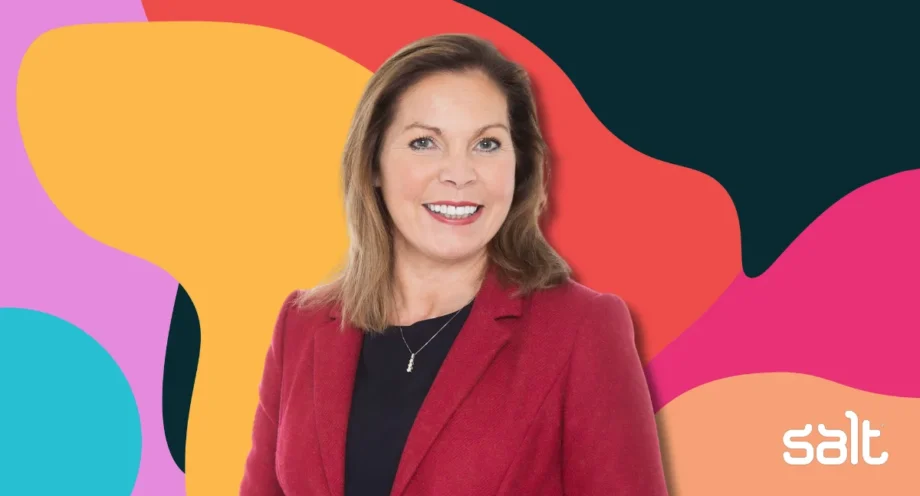The untapped potential of autistic talent in IT with Emma Walker
Autistic talent brings incredible abilities and capabilities to your organisation – but you must ensure they're included and supported.

Autistic talent brings incredible abilities and capabilities to your organisation – but you need change your perspective and your hiring process to include people with autism. Emma Walker, Regional Director of Auticon Scotland, shares the business benefits and how you can tap into this talent pool.
Introducing Emma:
My name’s Emma Walker and I’m the regional director for Auticon Scotland.
Auticon is an award winning global IT consultancy and social enterprise. We operate in a similar fashion to a regular IT consultancy with a couple of major differences.
Firstly, all of the consultants we employ are autistic. We permanently employ talented autistic adults with IT skills, and place them into client organisations to work on projects that match their skills.
The company was launched in 2011 by a father who had an autistic son who had a real keen interest and passion for IT, but because of his autism, he struggled to find employment, so that’s when Auticon was born. 12 years on and we now employ 500 people globally of which 80% are autistic. We have 31 offices in 15 different countries, we are spread globally.
Autistic unemployment is a social issue.
Auticon is also a social enterprise. The social issue that we are trying to address is the fact that only 16% of autistic adults are currently in full-time employment, although 77% say they’d like to work. If you compare this to the statistic for disabled people in general, which sits at 48%, this is very disappointing and one that we at Auticon are hoping to make an impact on.
Our social mission is to support autistic people to find fulfilling careers, and also educate employers about the value of having a Neurodiverse workforce.
What barriers to employment do autistic people face?
I think there are a number of different factors. One major factor is people’s attitudes towards autism. I think there’s a fear factor. People don’t have a good understanding about what it is, how to speak to an autistic person. They think they need to behave very differently, so they tend to veer away and not interact with autistic people.
But in terms of the whole recruitment process, there are so many barriers.
CVs
An autistic person may have the skills that’s needed for the role, but this may not be apparent on their CV. They may have gained their experience and their qualifications outside of University. They might have upskilled at home in their bedrooms. But, they may be better than anybody else at certain technologies, but they don’t have that piece of paper to prove that that’s what they can do. They might also have gaps in their CV because they’ve been in employment before, maybe working for an employer who hasn’t been supportive, or where they’ve masked their autism, so they’ve burnt out. If somebody shortlisting for a role doesn’t understand these factors, they may discard the CV thinking the applicant is lazy, or lacks the skills required for the role.
Interviews
Interviews tend to be a test of a person’s social interaction skills in an unstructured environment, which really doesn’t suit autistic people. Autistic people tend to need a bit of processing time, so they find it hard to provide relevant answers if questions are fired at them. Providing questions in advance that can really help an autistic person to structure their response and showcase how they are a suitable person for the role.
For many of the technical roles, a technical skills test will allow an autistic candidate to demonstrate the skills they have in a practical setting. This gives you a much better chance of understanding if they have the skills you’re looking for, rather than having a face-to-face conversation where autistic people really don’t do that well.
The job profile.
If you have a role profile with 10 different skills required for a job, someone might meet 5 of the requirements and think they’ll apply for the role.
An autistic person will see a job profile and if they can’t do all 10, they may think the job’s not for them. Even if they can do nine of them really well, and there’s one they can’t do, they may still de-select themselves. So, you’ve lost out on a potentially very good candidate.
With the traditional hiring process many recruiters thought that to be fair, everybody should be treated exactly the same way. Meaning equality of treatment.
Actually, to be fair to everybody, you need equality of opportunity, ie giving everybody the same opportunity to showcase their skills. People will need different adjustments to enable them to demonstrate the skills they have for the role.
How Auticon’s Neuroinclusion Service helps workplaces become more inclusive
Our Neuroinclusion Service came about as an evolution of our organisation. We started off as a typical IT consultancy, but then with various conversations with clients, we understood that more and more organisations were beginning to understand the value of having a neurodiverse workforce. But they didn’t necessarily want to hire contractors or consultants.
They wanted to attract, recruit, and retain their own Neurodivergent talent, but were unsure how to successfully go about it. So, we set up our Neuro Inclusion services. This is a suite of different options that organisations can choose from depending on what help and support they are require. We have a raft of different training modules to educate employees. We offer job coaching to support existing Neurodivergent employees and an advisory service to review a company’s policies and procedures to suggest how to make them more inclusive.
We also have NIMA! NIMA stands for Neuro Inclusion Maturity Assessment. This is a tool that will assess where an organisation is on their Neuro Inclusion journey using qualitative and quantitative data. We collect date from 3 main sources:
- Face-to-face interviews with key stakeholders in the organisation
- An employee survey which is sent out a wide group of different employees.
- A review of a selection of materials/policies/procedures that the organisation has.
This all gets fed into our NIMA machine and it comes out with lots of lovely data, which tells us where that organisation is on the Neuro Inclusion journey: what are they doing well and where the gaps are. The gaps are areas where we could provide support or make suggestions about how that organisation could become more Neuro Inclusive.
I think some of the suggestions that we make help everybody in an organisation. So, for example, if you’re looking at communication, meaning clear, concise communication helps everybody, even though it’s really important for Neurodivergent people to have that.
How can employers be more inclusive?
Personally, I think it’s down to education: giving people that understanding of what autism is and what all the different Neurodivergent conditions are.
People don’t have that understanding. They’re worried, they’re scared, and they don’t understand how to interact…
We have a raft of different training modules. We’d start with our foundation module looking at autism, what it means in the workplace and the benefits of having a Neurodivergent workforce. We have another module that covers the other Neurodivergent conditions like ADHD, dyslexia, dyspraxia, so people understand the terminology.
Understanding more about these conditions means understanding the benefits that Neurodivergent people can bring to their different organisations. So, people begin to see inclusion isn’t just doing good for the sake of doing good, it can impact a companies bottom line and make a real
Neurodivergent people can bring many benefits to the organisation. They can add value to the different projects, and that’s when people get really engaged and they want to be involved.
Understanding the benefits
Everybody is different. The real value in bringing somebody who thinks differently into the team is in terms of viewing problems differently: they can turn a whole problem on its head and come up with a completely wacky solution that could be a game-changer.
That’s the feedback we get from the clients that we work with. It’s like our consultants change the way their team thinks. They’ve brought in a different way of thinking, and that’s what they love.
They also love the straight-talking way of our consultants. I mean, a lot of people who work in a team, are sometimes scared to raise their head above the parapet and get pulled into group think. But if an autistic team member thinks something isn’t quite right, or could be done better, they won’t be scared to call it out, even if it’s the way it’s always been done.
20% of the general population is thought to be Neurodivergent. So, I would say most organisations already have Neurodivergent employees, whether those people have disclosed, and their organisation is aware of it or not. So anything that a company can do to be more neuroinclusive will help existing employees as well as attracting neurodivergent candidates to join.
Practical ways to bridge the digital skills gap through inclusive skills assessment.
As part of Auticon’s recruitment process, we test for a person’s cognitive skills, their cognitive ability. So, we test for things like:
- Pattern recognition
- Error detection
- Attention to details
- Sustained concentration
- Logical analysis.
Those five key areas really lend themselves performing well in IT tech roles. Employers should also understand that if an autistic person doesn’t have all the skills for a role, but if they have excellent, above average cognitive ability, they will very likely learn those skills really quickly.
Autistic people tend to have set things they’re interested in, and if they’re interested in IT, they’ll not only work in IT, but they’ll also go home and that’s what they do at weekends, that’s what they do in the evenings. They’re constantly upskilling themselves. They’re brilliant at working in IT-type roles because of that.
That’s something that consistently amazes me, that. We will say to a consultant that we’ve got this role coming up and it requires X, Y, and Z. The consultant may know X and Y but they’ve never heard of Z, but they go away and they just read up on it. They do the online skills tests, and in a couple of weeks they know this new technology inside out.
Learn more about the digital skills gap and how to upskill for uncertainty.
How can they get involved with mission and the service that you provide?
For organisations looking for skilled contractors with good technical ability and an innovative and creative way of thinking, please do contact us. Our consultants, love data, so any type of data roles, data wrangling right up to data science, quality assurance and testing, cybersecurity, software engineering, software development, any of those types of roles, we would love to speak to you.
If you’re thinking how to make your organisation more neuroinclusive then come and speak to us about our Neuro Inclusion services. Our flexible and bespoke service allows us to create a tailored pathway for you determined by your specific goals. Often a good starting point will be carrying out NIMA – the NeuroInclusion Maturity Assessment. This will provide a fully rounded portrait of where your organisation currently stands on neuroinclusion allowing us to develop a data-driven strategy, unique to your business and aligned to any existing plans
If you just want to find out more about autism in general, we have a great podcast series called Autism in Conversation with Auticon, there’s some great conversations there and really interesting listening!

